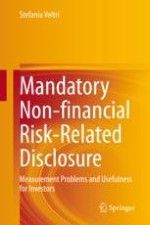2020 | OriginalPaper | Buchkapitel
3. The Mandatory Non-financial Disclosure in the European Union
verfasst von : Stefania Veltri
Erschienen in: Mandatory Non-financial Risk-Related Disclosure
Aktivieren Sie unsere intelligente Suche, um passende Fachinhalte oder Patente zu finden.
Wählen Sie Textabschnitte aus um mit Künstlicher Intelligenz passenden Patente zu finden. powered by
Markieren Sie Textabschnitte, um KI-gestützt weitere passende Inhalte zu finden. powered by
